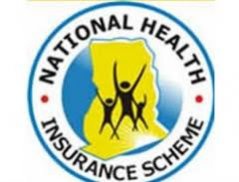The government has agreed to roll out the national health insurance capitation nationwide, Mr Sylvester Mensah, Chief Executive Officer of the National Health Insurance Authority (NHIA), has announced.
This, he said, would be done by the end of this year.
He said from the Authority’s own monitoring and evaluation of the pilot implementation in the Ashanti Region, as well as that of the independent consultants, they were satisfied with the outcome and ready to replicate the new payment system across the country on phased basis.
He was speaking at a stakeholders’ meeting to review the capitation which is being piloted in Ashanti, in Kumasi on Tuesday.
It was to brief the participants, drawn from the NHIA, Ghana Health Service, Mission Hospitals, private service providers and pharmacists on the outcome of a survey conducted by independent consultants on the pilot implementation, started in 2012.
Mr Mensah advised against introducing emotions and sensationalism into the implementation of the system.
Her said the issue to look at was whether the challenges encountered with the pilot scheme were surmountable, adding that, the review was to tighten the loose ends and find the way forward to ensure smooth nationwide implementation.
Mr Mensah announced a revised upward adjustment of tariffs for service providers beginning February 1.
The new tariffs are GH¢1.30 for government health facility providers, GH¢1.62 for the Mission Hospitals and GH¢2.27 for private service providers.
The old tariffs were GH¢0.99 for government hospitals, GH¢1.35 for mission hospitals and GH¢1.40 for private providers. Mr Mensah said the capitation would not be withdrawn.
The conclusion of the team of consultants, led by Mr Patrick Afoyah, was that although there had been some serious challenges with the implementation of the capitation system, it had helped to reduce some of the loopholes in claim payment and thereby saved money for the scheme.
Among the challenges identified were the reduction in the scheme’s membership, reduction in claim volumes by service providers, delays in payment of claims and withdrawal of some private service providers.
The findings of the consultants were however sharply disputed by the service providers including government health facilities.
They dismissed the figures put out, as “fabricated, cooked and not reflecting the reality on the ground”.
Dr Prosper Gbekor, Medical Superintendent of the Juaben Hospital, for example, discounted the consultants’ “average OPD utilization rate of 19 per cent”, insisting that the facilities were receiving between 46-60 per cent OPD cases every month.
Added to this, is the loss of about 30 per cent of patients who come to the facilities for services. This had resulted in low revenue generation. Again the low capitation tariff of GH¢0.99 per OPD attendance, was making it difficult for most facilities to deliver quality health care to the people in the region.
Dr Gbekor warned that if care was not taken, the capitation could collapse the public health care facilities.
Health News of Wednesday, 13 February 2013
Source: GNA
NHIA to roll out insurance capitation nationwide













